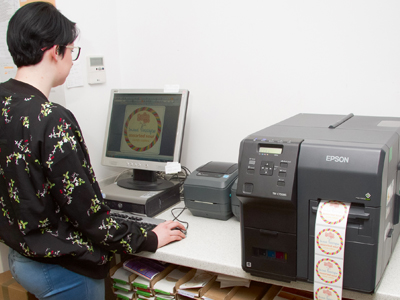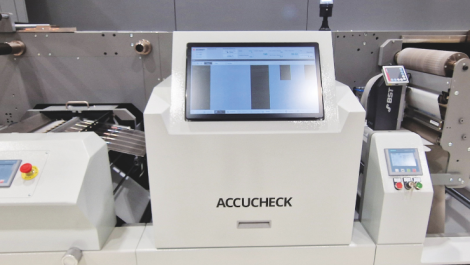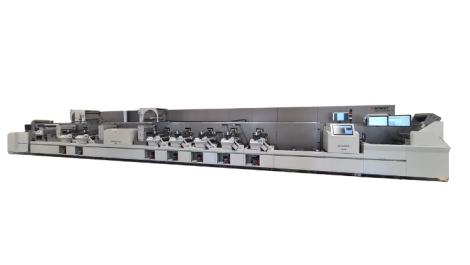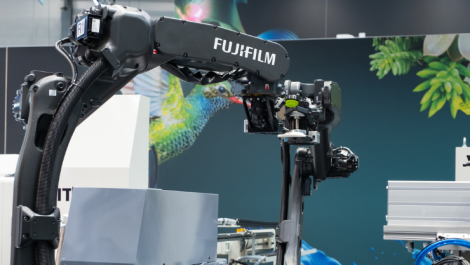This C7500 printer from Epson’s ColorWorks range is now printing labels on demand at hf Chocolates
Chocolate and confectionery importer, hf Chocolates, in Milton Keynes in the UK, has invested in an Epson ColorWorks C7500 Series colour label printer to meet its in house bespoke labelling needs.
Named after founder Hans Flatauer, who set up the company in 1957 to import and distribute German chocolate, hf Chocolates today imports chocolate and confectionery products in bulk from suppliers all over Europe and the US. The company supplies the products as they are or re-packaged to the retail trade – mainly the independent or specialist sector – and wholesalers. It also offers an own label design and print service to customers who require low quantities of items with their own logos and branding.
Gaining flexibility
Based in Milton Keynes, hf Chocolates produces colour labels in a wide range of shapes and sizes. Prior to investing in the ColorWorks C7500 printer, the company was using a desktop vinyl printer and cutter for very short runs, but bought in printed labels for large volume product orders.
Ambrose Boyd, commercial manager, said, ‘For us, being able to produce bespoke labels on demand was really about gaining flexibility and the ability to respond to market quickly as buying pre-printed labels was simply too cumbersome and not at all cost effective, unless huge volumes were involved. We had a clear idea of what we needed – a fast printer that could print high quality consistently and was cost effective, not just from a purchasing point of view, but also running costs and manning levels.’
Other key requirements from the printer included precise alignment of circular label graphics throughout the run and high capacity ink cartridges, which would cut production time and wastage.
The ColorWorks C7500 was supplied by Epson Colour +Plus Gold Partner KTEC Group. ‘We have worked with KTEC for a number of years so they know our business well,’ said Mr Boyd. ‘We looked at other machines but nothing else came close to the speed. Our main focus was printing on circular labels as we had many problems doing this previously. This printer passed the test!’
The compact label printer incorporates Epson’s PrecisionCore Micro TFP line printheads, which has been developed for use in the commercial-grade, industrial labelling market and lasts for the lifetime of the printer. This ensures the ability to print 600 x 1200 dpi quality labels on a wide variety of materials, including matte, gloss and synthetic media, in formats up to four inches wide, printing at 300 mm/sec, with Variable Sized Droplet Technology (VSDT) which produces ink droplets in a range of precisely controlled sizes. Nozzle Verification Technology and dot substitution helps prevent misprints and dead pixels.
Game changer
The new printer was set up in a day, with very little disruption to the company’s day to day production. Mr Ambrose said that it has been a game changer for the business. ‘On our previous printer we could print around 98 labels in 45 minutes. On the C7500 we’re producing 200+ labels in a few minutes. It’s now very easy for us to produce short runs of customised labels, and because of its speed, all labels can be printed as and when needed so we don’t need to hold large quantities of stock. Printing on demand has also eliminated the risk of packaging error, such as using the wrong pre-printed labels. The whole production workflow is much smoother and more cost-effective.’
One of the largest jobs in terms of volume of labels that hf Chocolates produces on the printer is for the Candy Cables confectionery bags – with an average volume of around 10,000 of the 70 x 70 mm round labels being output per month. The labels are all applied manually using a printed template for the different bag sizes.
The company is now looking to expand its range of labels produced using the C7500. Mr Ambrose said, ‘We’re currently looking at what jobs can be moved over to the new printer. It makes perfect sense that the more labels we can run through it the better, not only from a speed point of view, but it also cuts our staffing and production costs considerably.’






